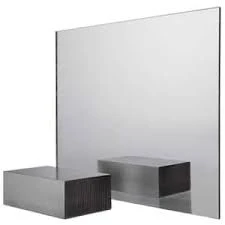

Buy Insulated Glass Units A Comprehensive Guide
In an era where energy efficiency and comfort are paramount, insulated glass units (IGUs) have emerged as a pivotal element in modern construction and renovation projects. Whether you're a homeowner looking to replace windows, a builder engaged in new constructions, or an architect designing a high-performance building, understanding the benefits and purchasing process of insulated glass units is crucial. This article will guide you through the key considerations when buying IGUs to ensure you make informed decisions that contribute to energy savings and enhanced comfort.
What is an Insulated Glass Unit?
An insulated glass unit is composed of two or more glass panes that are separated by a spacer and sealed to create an air pocket, or vacuum, which serves as thermal insulation. This design dramatically reduces heat transfer, offering significant advantages in energy conservation and indoor comfort. IGUs are commonly found in residential and commercial windows, as well as doors, skylights, and curtain walls.
Benefits of Insulated Glass Units
1. Energy Efficiency One of the primary reasons to choose IGUs is their ability to minimize energy consumption. By reducing heat loss in the winter and heat gain in the summer, these windows can significantly lower heating and cooling costs.
2. Noise Reduction The multiple layers of glass within an IGU can effectively dampen outside noise, making them an ideal choice for homes in busy urban areas or near highways.
3. Increased Comfort IGUs help maintain a consistent indoor temperature, eliminating cold spots and drafts. This enhanced comfort can improve your overall living environment.
4. UV Protection Many IGUs come with coatings that block a significant percentage of harmful ultraviolet rays, protecting your furniture and fabrics from fading.

Factors to Consider When Buying IGUs
1. Energy Ratings Look for IGUs with high energy-efficiency ratings, such as the Energy Star label. The U-factor and Solar Heat Gain Coefficient (SHGC) are essential metrics to consider, as they indicate the unit's thermal performance.
2. Glass Type There are various types of glass that can be used in IGUs, including low-E (low emissivity) glass, tempered glass, and laminated glass. Each type has its own set of benefits, so choose according to your specific needs.
3. Thickness and Spacing The overall thickness of the glass and the distance between the panes can affect thermal performance and sound insulation. Generally, thicker glass and wider spaces can enhance these features.
4. Sealing and Spacer Materials Ensure that the manufacturer uses high-quality sealants and spacers, such as those made from warm-edge technology. This helps to maintain the structural integrity of the IGU and improves energy efficiency.
5. Warranty and Certification Always inquire about the warranty offered for the IGUs as well as any industry certifications. A good warranty not only reflects the manufacturer’s confidence in their product but also provides peace of mind.
Where to Buy Insulated Glass Units
You can purchase IGUs from various sources, including local window and door suppliers, home improvement stores, and specialized glass manufacturers. It’s advisable to compare products from multiple vendors to ensure you find the best combination of quality and price.
Conclusion
Investing in insulated glass units is a smart choice for anyone looking to enhance their property’s energy efficiency, comfort, and aesthetic appeal. By considering the benefits and factors outlined in this guide, you can choose the right IGUs that suit your needs, making your home or building a more sustainable and enjoyable space. Don't hesitate to seek advice from professionals to navigate the plethora of options available and to ensure you make a well-informed decision when buying insulated glass units.